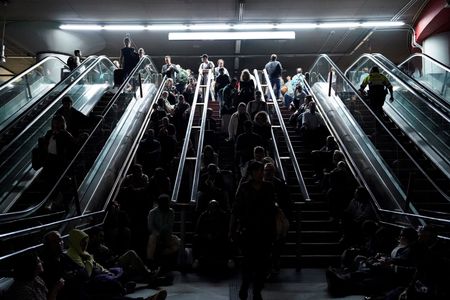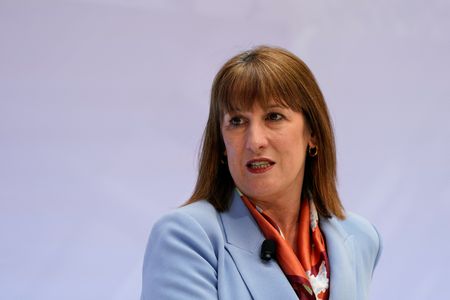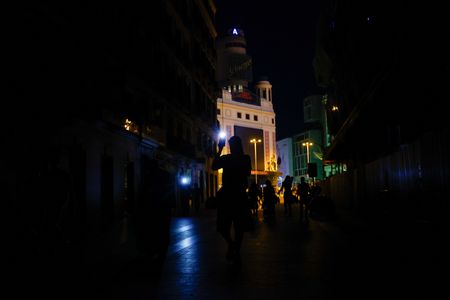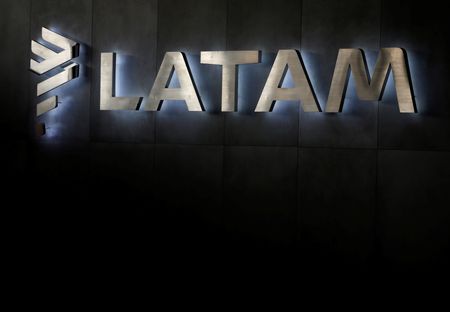By Emma Pinedo, Catarina Demony and David Latona
MADRID/LISBON (Reuters) -Power started returning to parts of the Iberian peninsula late on Monday after a huge outage brought most of Spain and Portugal to a standstill, grounding planes, halting public transport, and forcing hospitals to suspend routine operations.
Spain’s Interior Ministry declared a national emergency, deploying 30,000 police across the country to keep order as governments from the two countries convened emergency cabinet meetings. Outages on such a scale are extremely rare in Europe.
The cause was unclear, with Portugal suggesting the issue originated in Spain and Spain pointing the finger at a break-up in its connection to France.
Portuguese Prime Minister Luis Montenegro said there was “no indication” a cyberattack had caused the blackout, which began around 1033 GMT.
Nonetheless, rumours circulated of possible sabotage, and Spanish Prime Minister Pedro Sanchez said he had spoken to NATO Secretary General Mark Rutte.
Sanchez said that the country had suffered a loss of 15GW of electricity generation in five seconds, equivalent to 60% of national demand. Technicians were working to figure out why that sudden drop occurred, he said.
“This is something that has never happened before,” he said.
Joao Conceicao, a board member of Portuguese grid operator REN, told reporters the company had not ruled out the possibility of a “very large oscillation in electrical voltage, first in the Spanish system, which then spread to the Portuguese system”.
“There could be a thousand and one causes, it’s premature to assess the cause,” he said, adding that REN was in contact with Spain.
Spain’s grid operator REE blamed a connection failure with France for triggering a knock-on effect.
“The extent of the loss of power was beyond what European systems are designed to handle and caused a disconnection of the Spanish and French grids, which in turn led to the collapse of the Spanish electric system,” Eduardo Prieto said.
Earlier, parts of France suffered a brief outage. RTE, the French grid operator, said it had moved to supplement power to some parts of northern Spain after the outage hit.
POWER RESTORED
In Spain, power started returning to the Basque country and Barcelona areas in the early afternoon, and to parts of capital Madrid on Monday night. About 61% of electricity had been restored by late Monday, according to the national grid operator.
Enagas said it had activated emergency systems to meet demand during the blackout, while Prieto said returning systems to normal would take “several hours”.
In a video posted on X, Madrid Mayor Jose Luis Martinez-Almeida said city street lighting had not been fully restored so he recommended people stay at home, adding: “It is essential that the emergency services can circulate.”
Power was also gradually returning to various municipalities in Portugal late on Monday, including Lisbon city centre. Grid operator REN said 85 out of 89 power substations were back online.
SHOPS AND METRO CLOSED
The blackout had wide-ranging effects across the peninsula.
Hospitals in Madrid and Catalonia in Spain suspended all routine medical work but were still attending to critical patients, using backup generators. Several Spanish oil refineries were shut down, and some retailers closed, including grocery chain Lidl and furniture giant IKEA.
Portuguese police said traffic lights were affected across the country and the metro was closed in Lisbon and Porto, while trains were cancelled in both countries.
“I just don’t know who to turn to. My daughter in Barcelona is giving birth. We’re going to miss the connection to get there,” said Angeles Alvarez, stranded outside Madrid’s Atocha railway station.
Sanchez said on Monday evening that about 35,000 train passengers had been rescued from trains while 11 trains still remained stranded in remote areas.
Images from a Madrid supermarket showed long queues at tills and empty shelves as people rushed to stock up on staples, while play at the Madrid Open tennis tournament was suspended.
The Bank of Spain said electronic banking was functioning “adequately” on backup systems, though residents also reported ATM screens had gone blank.
There were traffic jams in Madrid city centre as traffic lights stopped working, with people in reflective vests appointing themselves to direct vehicles at intersections. Local radio reported people trapped in stalled metro cars and elevators.
Many Spaniards decided to take a half-day off, congregating in streets and plazas for impromptu get-togethers or cooking meals by candlelight at home.
Internet traffic plummeted by 90% in Portugal and 80% in Spain compared to previous-week levels, according to Cloudflare Radar, which monitors global internet traffic.
Power outages of such a magnitude are rarely seen in Europe. In 2003 a problem with a hydroelectric power line between Italy and Switzerland caused a major outage across the whole Italian peninsula for around 12 hours.
In 2006, an overloaded power network in Germany caused electricity cuts across parts of Europe and as far as Morocco.
About 43% of Spain’s energy comes from wind and solar power, with nuclear accounting for a further 20% and fossil fuels 23%, according to energy think tank Ember.
(Reporting by Emma Pinedo, Jesus Aguado, Andrei Khalip, Catarina Demony, Aislinn Laing, Dominique Patton, Inti Landauro and David Latona; Writing by Nina Chestney,Michele Kambas and Charlie Devereux; Editing by Andrei Khalip, Timothy Heritage and Rosalba O’Brien)












